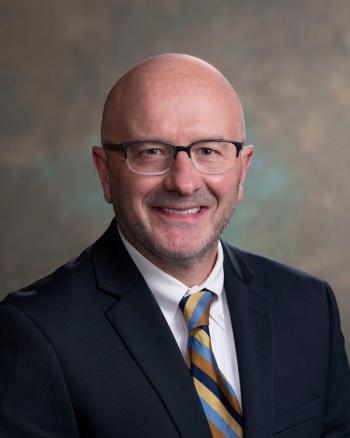
Physicians are needed for jobs outside of patient care
Nonclinical positions are available in a number of industries and sectors
Physicians choose to take nonclinical positions for a variety of reasons, including to take on a leadership role, concentrate on a particular interest, or address burnout. Nonclinical jobs are available in a number of industries and sectors. Pharmaceutical companies, consulting and professional services firms, the federal government, nonprofits, and other types of organizations can benefit from a physician's medical expertise and patient care experience.
Doctors are not "leaving medicine" by taking a job that doesn’t involve directly diagnosing and treating patients. Rather, they are merely using their skills and expertise in a different way. They help to prevent and manage disease and promote overall health of both individuals and populations. Precisely how they accomplish this depends on the type of organization and specific role.
The following five responsibilities are some of those for which physicians tend to be needed outside of patient care.
1. Analyzing and interpreting
Physicians are in a unique position to be able to analyze health-related data and apply it to a policy, plan, situation, or product. This is due in part to our deep understanding human biology and the pathophysiology of disease. Just as important, though, is our ability to interpret data in a clinical context. This combination allows us to not only come to accurate conclusions, but to apply them appropriately.
Drug safety physicians with pharmaceutical companies analyze adverse event data. Managed care medical directors interpret medical study results to develop clinical coverage policies. There are just a couple of the many examples of doctors analyzing and interpreting medical and health-related data in nonclinical roles.
2. Disseminating and communicating
A significant portion of our medical education is spent learning to be good communicators. We're taught to how to ask the right questions, empathize, deliver bad news, and explain complex topics in lay terms.
Communication skills aside, a medical degree garners some amount of immediate respect in many contexts.
Physicians are called upon to disseminate and communicate health-related information in various contexts. Medical writers convey scientific information through publications. Medical science liaisons communicate similar information verbally. Medical directors of numerous organizational types disseminate relevant medical data to both internal and external stakeholders.
3. Prioritizing and strategizing
A patient evaluation in a clinical setting may reveal a laundry list of signs and symptoms. Physicians rely on their ability to prioritize in order to address the most pressing needs and concerning findings first. Similarly, an overall management strategy is needed to effectively treat complex diseases, making proficiency in strategizing crucial to effective patient care. In a nonclinical setting, physicians may be involved with several company initiatives at one time. Prioritization prevents fires from starting and drives the organization toward its goals.
Physician leaders are instrumental in developing strategy for companies whose products or services impact patient care or human health. For example, a management consultant evaluates the challenges of client companies—which are often healthcare organizations - and recommends strategy to address them.
4. Promoting and protecting
As physicians, we're adept at empowering our patients to make smart decisions about their own health. Physicians in nonclinical roles promote and protect on a population level. For example, the medical officer at a health department oversees use of funds, personnel, and other resources to promote and protect the population’s health.
Many physicians are involved in professional associations, advocacy groups, or nonprofits aimed at ensuring that we're able to meet our patient's needs. Those who enjoy this professional involvement may find fulfillment in a nonclinical career with a similar focus.
5. Improving and innovating
You might struggle to recall a recent day at work in which all your technology worked perfectly, your clinic’s processes ran flawlessly, and your patients followed your recommendations exactly.
There is ample room for improvement and innovation in medicine and in our broader healthcare system. Nonclinical physicians are armed with the experience and expertise necessary to innovate and guide improvements. Physicians working for biotech startups, health IT companies, or in pharmaceutical research do so with a focus on product development. Those working within the professional services sector direct innovation through process improvement and other intangible innovation.
Physicians are indispensable for much more than patient care
Our knowledge and experience as physicians equip us to provide significant value far beyond individual patient care. The examples above are only a few of the ways in which we can contribute to improving the health of individuals and populations through the products, services, and solutions that organizations of many types provide.
It's far too common to hear about physicians who are considering a nonclinical job simply because they are burned out or frustrated by aspects of clinical work. Practicing our profession in a nonclinical setting should be a strategic career decision driven by the benefits that our skill sets can provide beyond a traditional patient care setting.
About the Author
Sylvie Stacy, MD, MPH is a preventive medicine physician and blogger at
Newsletter
Optimize your practice with the Physicians Practice newsletter, offering management pearls, leadership tips, and business strategies tailored for practice administrators and physicians of any specialty.






